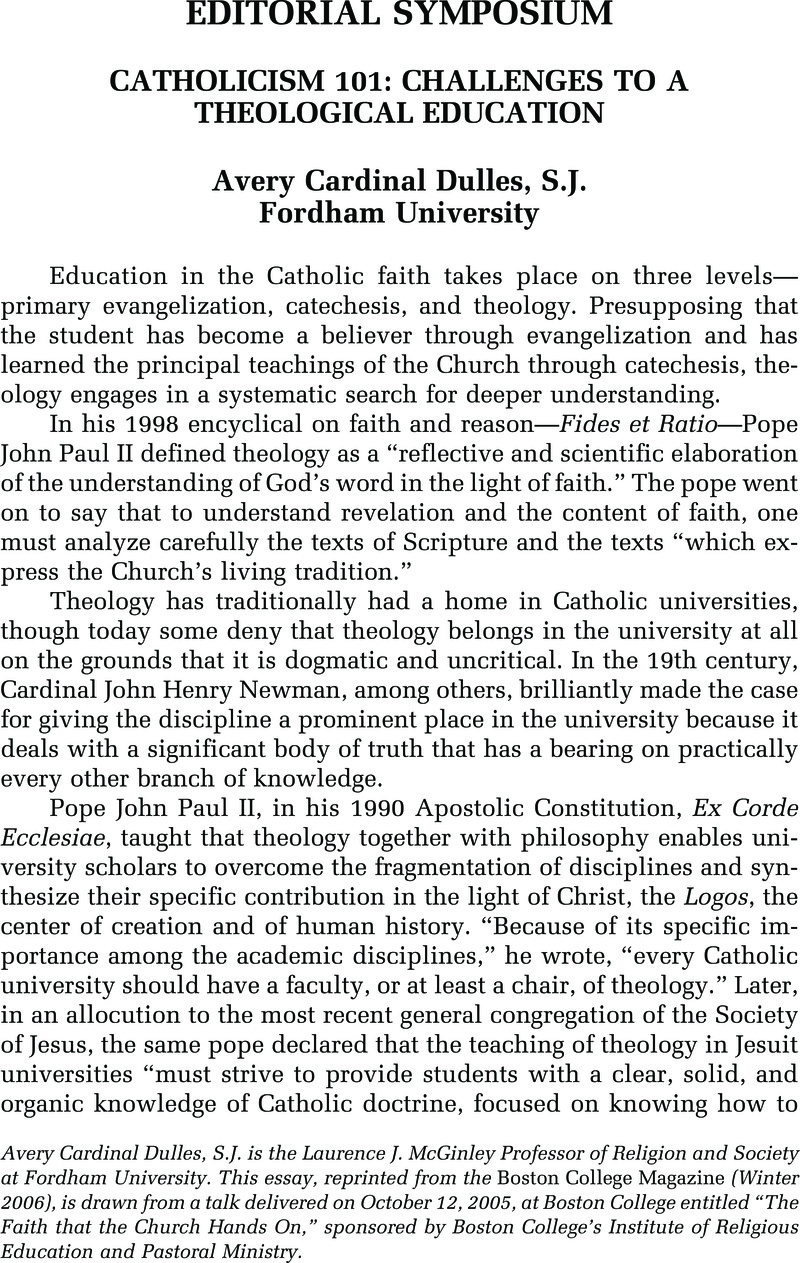No CrossRef data available.
Published online by Cambridge University Press: 18 March 2013

2 In 2004, at the fiftieth anniversary meeting of the College Theology Society, a panel addressed many issues related to college-level theology, given the demise of the Euro-American Catholic subculture, but from a quite different perspective, and reaching quite different conclusions than Avery Dulles. See the essays by Mize, Sandra Yocum, Diaz, Miguel, Hinsdale, Mary Ann, and Donahue, James A. in Tilley, Terrence W., ed., New Horizons in Theology, College Theology Society Annual Volume 50 (Maryknoll, NY: Orbis, 2004), 217–53.Google Scholar
3 I realize that not all students in such courses may be Catholic, which makes for an added challenge; however, I believe it is possible to entertain this question even in a religiously plural classroom. And I think it is important to do so, particularly in the West, when fewer young people identify with mainstream religion (“I'm spiritual, but not religious”; “I was raised Catholic, but…”; or “I am a recovering …”). I have found that non-Catholic students are some of the best interlocutors in such discussions, especially since for many more of them, decisions about religious rites of passage (baptism, confirmation, Bar or Bat Mitzvah) have been matters of personal choice, rather than familial expectation.
4 An extremely useful book for this purpose is Gaillardetz, Richard, By What Authority: A Primer on Scripture, the Magisterium and the Sense of the Faithful (Collegeville, MN: Liturgical Press, 2003).Google Scholar